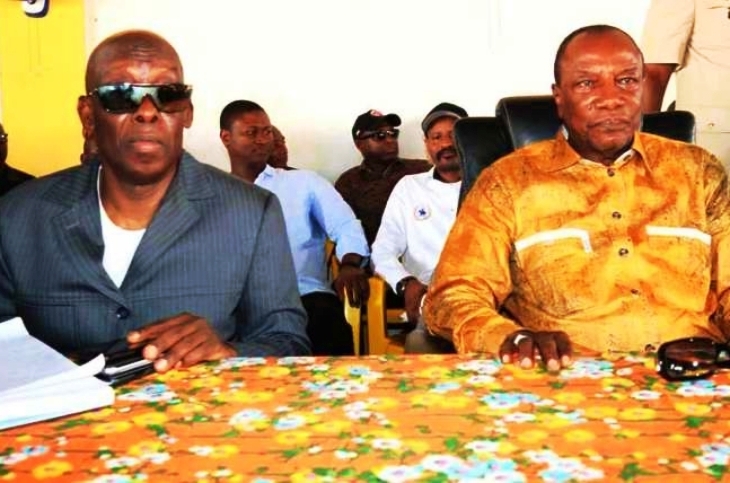Gambiaj.com – (CONAKRY, Guinea) – The Court for the Repression of Economic and Financial Offenses (CRIEF) has issued its ruling in the high-profile case involving Dr. Mohamed Diané, a former key official under Guinea’s ex-President Alpha Condé. Dr. Diané, who served as Minister of National Defense, Minister responsible for Presidential Affairs, and Chief of Staff to the Presidency, was convicted of embezzlement of public funds, illicit enrichment, and money laundering.
The verdict, announced by a trial chamber chaired by Judge Yagouba Conté, sentenced Dr. Diané to five years in prison and a fine of 5 billion Guinean francs. In addition, the court ordered the confiscation of his real estate and banking assets. On the civil front, Dr. Diané must pay the Guinean State 500 billion Guinean francs in damages, with a provisional payment requirement of 25% of the total amount.
Divided Reactions
The decision has sparked mixed reactions among the parties involved. Me Pépé Antoine Lama, representing the State as the Judicial Agent, expressed partial satisfaction with the ruling but criticized the exclusion of property belonging to Dr. Diané’s wife from the confiscation order.
Meanwhile, Dr. Diané’s defense lawyer, Me Sidiki Bérété, rejected the verdict outright, announcing plans to appeal. “This decision raises questions about the fairness of the legal procedures and the management of confiscated property,” he argued.
Throughout the trial, Dr. Diané maintained a stoic silence, refusing to answer questions from the court, the public prosecutor, or lawyers from either side.
Speaking after the ruling, Me Lama praised the decision as a significant step in Guinea’s fight against corruption and economic crimes. “This conviction illustrates the judicial authorities’ determination to combat illicit enrichment and embezzlement,” he stated.
The case underscores Guinea’s ongoing efforts to address economic and financial crimes, which have long undermined public trust and development. However, the contrasting reactions highlight the challenges in ensuring that justice is both effective and equitable.
As the defense prepares its appeal, the ruling sends a strong signal about the government’s commitment to holding former officials accountable for economic offenses. However, questions about the fairness and inclusivity of asset confiscation orders may shape the broader narrative of this landmark case.
Observers will closely watch how the appeals process unfolds and whether it reaffirms or alters the court’s decision.










